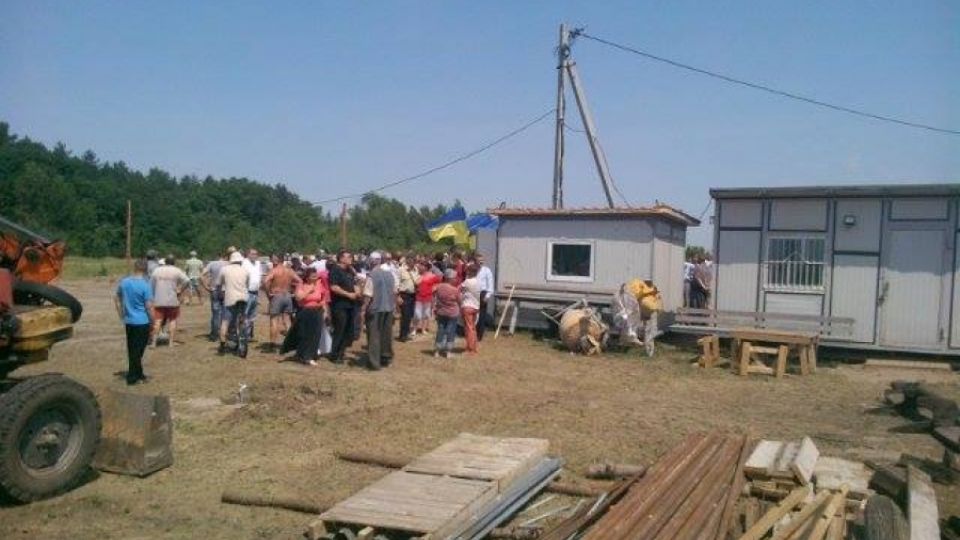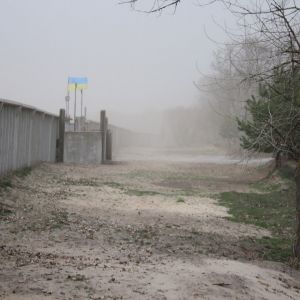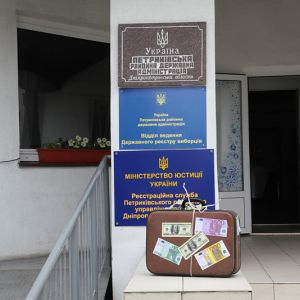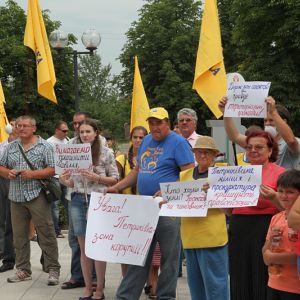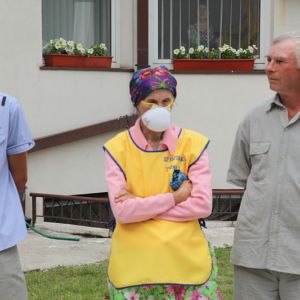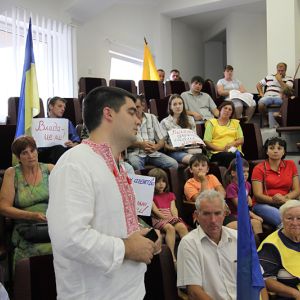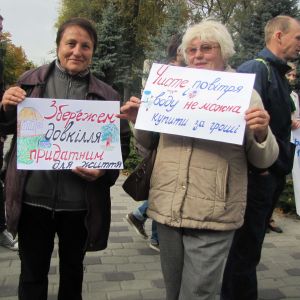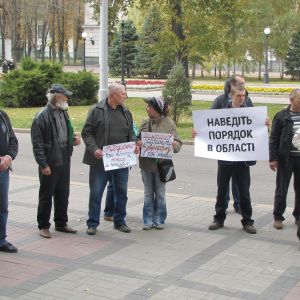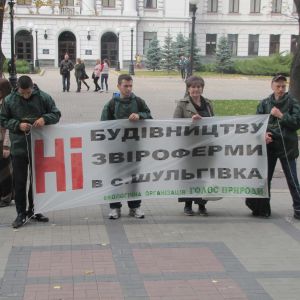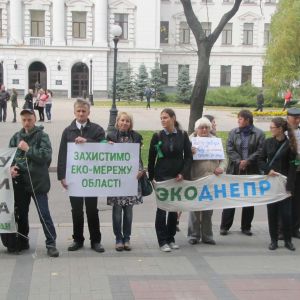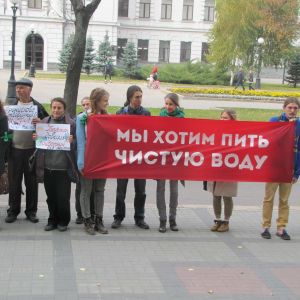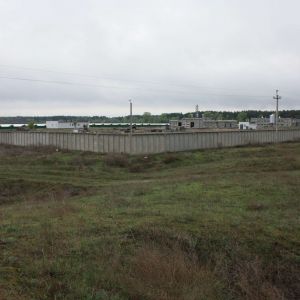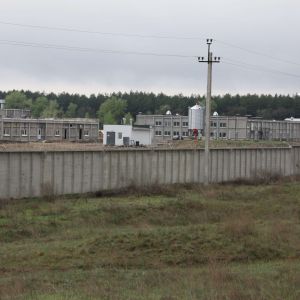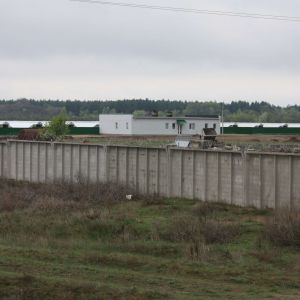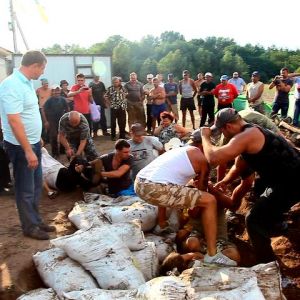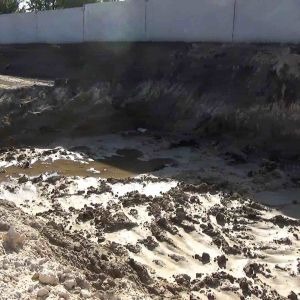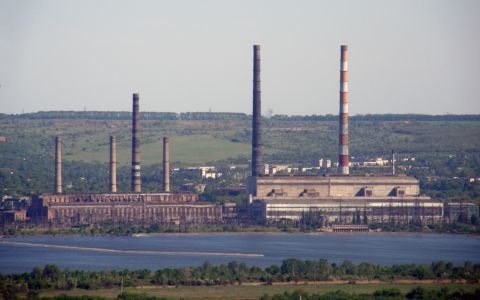The village of Shulgivka lies 100 km from the city of Dnipro in the Dnipropetrovsk region, on the border with the Poltava region. It has 1,500 inhabitants. In 2014, the district council decided that 43 hectares of land that the locals used primarily as cow pasture would be sold to a company that started building a huge mink farm, an industrial concept with a capacity of half a million animals. The company cut down 11 hectares of forest and began building halls.
Public protests
Local residents have been actively protesting against construction since spring 2014. They were afraid of water losses in wells and water and soil pollution. Shulgivka is the only inhabited area in the planned National Park which should be established in this region. There are large numbers of protected plants and animals in the area. The local people collected signatures and turned to the councillor and the regional governor, but without success. In summer 2014 their protests intensified. The local people organized a blockade of the roads to the mink farm. During the protests there were violent clashes and the farm security personnel physically attacked and injured several demonstrators. Since that time the police haven’t investigated the incident properly. Initially, the local people lacked materials to help them determine the real impact of the farm’s operations on the environment. Later, they managed to find out that the Environmental Inspectorate had recorded a total of 44 violations of the law during two inspections, including an illegal building on land not owned by the farm and the absence of a building permit. However, the inspection imposed only very small fines on the farm amounting to a few hundred Ukrainian hryvnia. Local concerns over water have been confirmed: the farm consumes more water for its operation than officially reported.
The sludge scandal
In 2016, toxic sludge appeared in a small stream near the village. Many fish died, and several people suffered from poisoning. The NGO Shulgivska Gromada organized the removal of sludge samples and their analysis in the laboratory. On the basis of the results, the NGO arrived at the suspicion that the mink farm could have developed a sludge leak. The case has not recurred because of the media scandal. Because of the inefficiency of environmental inspections, Shulgivska Gromada suspects the local authorities of corruption. The mink farm belongs to the company “Pro-Construction Complex (PSK) Agroprominvest”, which is a subsidiary of the AgroOven corporation. The owner of this company is Viktor Petrovich Zavorotny, deputy of the Dnepropetrovsk Regional Council and a member of the Commission for Ecology.
Proceedings before the European Court of Human Rights
Shulgivska Gromada attempted to contest the building permit for a mink farm before the Ukrainian courts. According to the NGO the Architecture and Construction Inspectorate, the administrative authority which issued the permit, had inadequate documentation to issue the permit (environmental impact analysis) and therefore it issued the permit illegally. The action was filed with the court of first instance (the Administrative Court of the City of Kyiv) on 23 October 2015. Within the action the NGO stated that the mink farm based on the building permit that was issued presents an elevated threat to the environment of the Shulgovka Petrykivskyi district of the Dnipropetrovsk region. The NGO described the violations of the law which made the building permit illegal, especially the violation of the legal standards for health and the environment, the violation of the duty to protect the environment, an unlawful breach of sanitary protection zones, and violation of the Ukrainian Land Act. The Ukrainian courts rejected the action of Shulgivska Gromada on the grounds that the NGO was not a party to the building permit proceedings but only a member of the general public. On 15 June 2016 Shulgivska Gromada filed an appeal against the decision of the court of first instance. The decision of the court of first instance was not delivered to Shulgivska Gromada, who, therefore, were not able to comply with the ten-day period for filing an appeal, which violated its procedural rights. The failure to deliver the decision violated the right of the plaintiff for due process as it effectively prevented the plaintiff from filing an appeal. Despite the argumentation that was submitted, the appeal of Shulgivska Gromada was rejected on 6 July 2016. On 3 August 2016 Shulgivska Gromada filed a complaint to the Supreme Administrative Court of Ukraine. In 2017, on behalf of the inhabitants of the village of Shulgivka, Arnika brought an action before the European Court of Human Rights on the grounds of the infringement of their rights when the decision was made to build a mink farm and the resulting environmental damage. The court dismissed the action, but the preparation of the documentation helped local partners understand how to prepare cases for the European Court of Human Rights.



